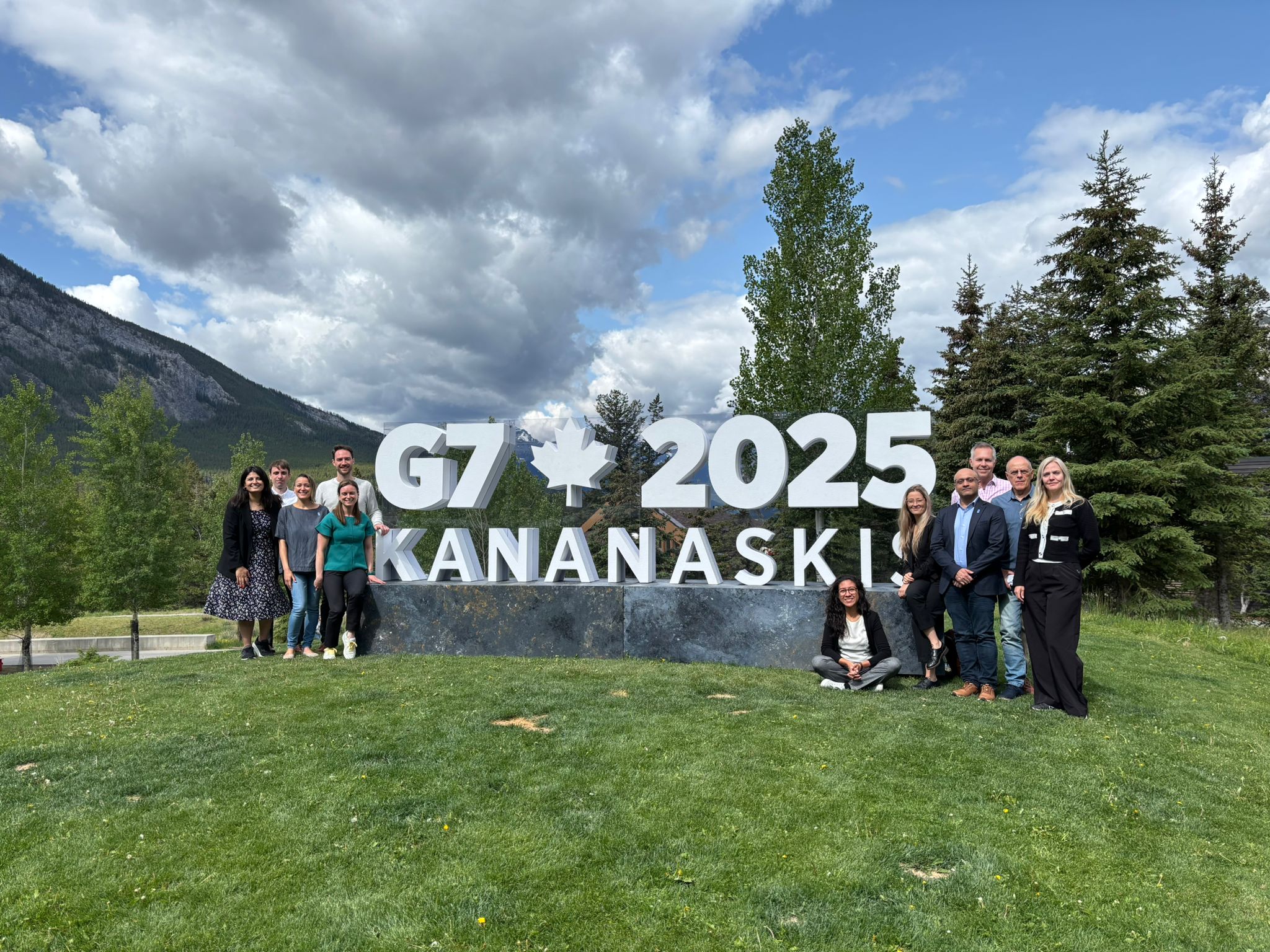
Civil 7 Reaction to the 2025 G7 Leaders’ Summit
The G7’s 50th anniversary Leaders’ Summit in Kananaskis has come to a close. While the Civil 7 (C7) acknowledges some positive commitments made by G7 leaders, ultimately the Summit fell short of the ambition and unity needed to meet today’s global challenges.
The Summit unfolded against a backdrop of intensifying humanitarian need, a rapidly changing climate, democratic backsliding, and deepening inequality. The C7 had urged G7 leaders to embrace a justice-centered agenda grounded in international law, equity, human rights, and multilateral cooperation. What emerged instead was a patchwork of statements that failed to confront the structural crises facing people and planet.
While we welcome calls for a ceasefire in Gaza and protection of civilians in the Middle East, the absence of strong commitments to restore humanitarian access and uphold international humanitarian law is deeply troubling. Furthermore, in light of the recent military escalations involving Iran and Israel, we call on the G7 to assume a balanced and principled role in de-escalating tensions through diplomacy. The path to lasting peace lies in impartial mediation and a steadfast commitment to dialogue over confrontation. Support for peace must be universal, not selective.
The G7’s reaffirmed support for Ukraine and its opposition to transnational repression are important signals in defence of international law and civic space. However, silence on other urgent contexts, including Sudan, the Democratic Republic of Congo, Haiti, Myanmar, Yemen, ignores the needs of millions facing displacement, violence, and hunger.
Development cooperation was notably absent. In stark contrast to the 2002 Kananaskis Summit, where G8 leaders centred Africa and development, this year’s gathering failed to respond to shrinking aid budgets and growing global need. This is not fiscal prudence. It is a strategic failure that undermines global stability and ignores the transformative potential of bold, people-centered partnerships.
The reference to debt relief lacked specificity and ambition. With many countries facing or nearing debt distress, the G7 must champion structural reform of the international financial architecture and support unconditional debt cancellation. The C7 reiterates its call for a permanent sovereign debt workout mechanism under the auspices of the United Nations.
G7 cooperation with the Global South must move beyond resource extraction and geopolitical competition. It must prioritize equitable value chains, decent work, gender equity, and meaningful economic autonomy to ensure trade and investments uphold, rather than undermine, development, climate, and human rights goals. Moreover, the G7 Critical Mineral Action Plan should not undermine the needs and interests of the Indigenous Peoples and lands in source countries and should support development of value chains which allow communities in the source countries to benefit fairly from their resources and build their own green and sustainable energy economies.
There was a notable lack of dialogue and commitments on gender equality and the protection and promotion of women’s rights and LGBTQI+ rights. At a time when the rights of women and LGBTQI+ people are being rolled back in many parts of the world, this is very disappointing. Given the clear links between progress on gender equality and progress on peace, security and sustainable economies, this is a missed opportunity.
On climate, the gap between rhetoric and action remains wide. While the G7 acknowledged wildfire and environmental management, it failed to present a credible roadmap to phase out fossil fuels, scale climate finance, or meet existing commitments. The C7 calls on G7 countries to end fossil fuel subsidies, contribute new and additional finance to the Loss and Damage Fund, and increase funding for adaptation, especially for the most vulnerable communities.
We welcome the G7’s recognition of Indigenous leadership, particularly in wildfire response and the Critical Minerals Action Plan. However, such inclusion must be part of broader commitments to upholding the United Nations Declaration on the Rights of Indigenous Peoples, including the principle of Free, Prior, and Informed Consent, alongside environmental justice.
The C7 urges G7 leaders to translate political will into action on fossil fuel phaseout, tax justice, debt relief, trade equity, and humanitarian action. Civil society is not on the sidelines. We are at the heart of real, people-powered solutions. We stand ready to work with those who lead with courage and principle.
As the G7 prepares for upcoming Ministerial meetings and the world moves onto other global summits, including the Fourth International Conference on Financing for Development, we call on leaders to uphold the values of justice, equity, and multilateral solidarity. We look forward to further engagement with G7 governments to ensure that these values drive transformative action.